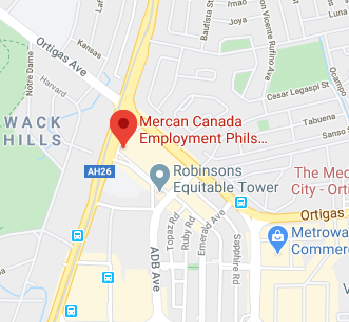Brought to you week by week by Chantal Desloges and her fabulous team.
Hello, fellow practitioners! Today’s column deals with misrepresentation under s.40 of the Immigration and Refugee Protection Act (IRPA).
We have dealt with misrepresentation a number of times in previous columns. However, lately I have come across a number of instances where clients have been found to be inadmissible for failing to disclose prior visa refusals. Today’s column will primarily canvass case law in which misrepresentation findings were made following an applicant’s failure to disclose prior visa refusals or removals.
I will not go into a detailed background on s.40 of the IRPA, as that has been done in prior columns. To briefly recap, section 40 of the IRPA states:
40 (1) A permanent resident or a foreign national is inadmissible for misrepresentation
(a) for directly or indirectly misrepresenting or withholding material facts relating to a relevant matter that induces or could induce an error in the administration of this Act […].
This provision has been applied very broadly by the courts. A misrepresentation need not be decisive or determinative. It is material if it is important enough to affect the process.
There is an exception for innocent mistakes, which has been applied very narrowly by the courts. Two criteria must be satisfied for the innocent mistake exception to apply:
- The decision maker must ask whether the person honestly believed that he was not making a misrepresentation; and
- The decision maker must ask whether it was reasonable on the facts that the person believed that he was not making a misrepresentation.
To put it another way, knowledge of the misrepresentation must be beyond the applicant’s control. Even where a person is found to be credible in their subjective belief, it only satisfies the first part of the test. It does not necessarily satisfy the second part of the test (i.e. whether their belief of not making a misrepresentation was reasonable).
In most of the cases discussed below, the applicants responded “no” to questions 6(d) or (e) of Schedule A (IMM 5669), which read:
- Have you, or, if you are the principal applicant, any of your family members listed in your application for permanent residence in Canada, ever:
- d) been refused refugee status, an immigrant or permanent resident visa […] or application to the Provincial Nominee Program) or visitor or temporary resident visa, to Canada or any other country or territory?
- e) been refused admission to, or ordered to leave, Canada or any other country or territory?
I have extracted the following points from the case law:
- A misrepresentation can occur even if an applicant provides clarification or correction in response to a procedural fairness letter.[1]
- Just because an applicant receives subsequent approvals on applications, does not mean that they can fail to declare the first refusal.[2]
- Just because IRCC has access to a client’s file (which would have information about a prior refusal), does not mean that the failure to declare it will not be material.[3]
- A determinative misrepresentation can occur without the applicant’s knowledge (e.g. it was made by their representative). In Goburdhun, the applicant even instructed the representative to change the answer before the application was submitted.[4]
- Just because an application was refused a very long time ago, does not mean that it will be reasonable for an applicant to omit it on their application.[5] If a refusal was recent, then it is likely reasonable for an officer to reject an applicant’s explanation that they forgot about the refusal.[6]
- It does not matter that the applicant thinks that the prior refusal is not relevant. Motive does not equate innocence.[7] For instance, it will not matter that an applicant failed to disclose a prior refusal because they thought that subsequent approvals or a long passage of time made it irrelevant.
- It may not be enough for an applicant to say that he or she did not know about a prior application’s status if it had been submitted many years prior. They are expected to state that they are unsure of its status, or to follow up on the application, especially if they are sophisticated and familiar with immigration processes.[8]
- Even if an applicant selects “yes” to the question “Have you ever been refused a visa or permit, denied entry or ordered to leave Canada or any other country?”, they are expected to reference all prior refusals and a failure to reference one of them may lead to an misrepresentation finding.[9]
- Procedural fairness may require a visa officer to state explicitly what refusals an applicant needs to address.[10]
- An innocent misrepresentation finding may be more likely if an applicant is self-represented, has had extensive satisfactory dealings with Canadian authorities in the past, and the application clearly shows the applicant’s confusion with respect to the information being requested.[11]
- A misrepresentation finding may depend on the type of application that was refused, the reasons for the refusal, and the type of application being applied for.
In Murugan v. Canada (MCI), 2015 FC 547, the Court found that failing to declare a prior visitor visa refusal in an application for permanent residence under the Family Class was not a misrepresentation. The prior visitor visa application was refused for concerns that the applicant might overstay. This would not have had an impact on the application for permanent residence, and therefore could not have induced an error in the misrepresentation of the Act.
However, in Diwalpitiye v. Canada (Minister of Citizenship and Immigration), 2012 FC 885, the Court upheld a permanent residence application refusal based on a misrepresentation finding because the applicant failed to disclose prior temporary resident visa refusals. The decision maker made the finding because the application being reviewed was based on work experience in Canada, and thus the omission of the applicant’s immigration history affected the analysis of both admissibility and eligibility. It is interesting that the judge stated that the decision “tests the limits of reasonableness”.[12]
- It may be difficult to convince an officer that an applicant misread the question and thought that it only applied to Canadian refusals. In Alalami v Canada (MCI), 2018 FC 328, the court found it reasonable for an officer to not accept this explanation.
- Where an applicant fails to declare something in the forms, yet that information is provided elsewhere in the application or during an interview, then it may not rise to the level of misrepresentation.[13]
- If an applicant is alleging that they made an innocent mistake, then at the very least they should provide an affidavit to that effect, so that it will be in the record on a judicial review.[14]
- Where a visa is “voided” (i.e. not refused), or where an applicant is permitted to leave voluntary by way of a voluntary departure order (i.e. not removed), then an applicant may be able to avoid a misrepresentation finding. At the very least, this may be indicative of an innocent misrepresentation.[15]
The cases cited above are generally more complex than the summaries I have provided, so I encourage you to read them in full.
As you can see, it is quite difficult to overcome concerns that an applicant has made a misrepresentation. The innocent misrepresentation exception is very narrow, and is only accepted in exceptional circumstances. As representatives, it is important to make sure that applicants are aware of what is being asked of them, and that they are declaring all of their refusals, etc. per the wording of Schedule A.
[1] Patel v Canada (MCI), 2017 FC 401 at para 77 [Patel].
[2] Diwalpitiye v Canada (MCI), 2012 FC 885.
[3] Goburdhun v Canada (MCI), 2013 FC 971 at para 45 [Goburdhun].
[4] Ibid at para 30.
[5] Appiah v Canada (MCI), 2018 FC 1043.
[6] Mohseni v Canada (MCI), 2018 FC 795.
[7] Patel v Canada (MCI), supra note 1 at para 86.
[8] Alkhaldi v Canada (MCI), 2019 FC 584.
[9] Tuiran v Canada (MCI), 2018 FC 324.
[10] Punia v Canada (MCI), 2017 FC 184 [Punia].
[11] Ibid.
[12] See also Balasundaram v. Canada (MCI), 2015 FC 38.
[13] Koo v Canada (MCI), 2008 FC 931.
[14] Patel, supra note 1 at para 67.
[15] Sbayti v Canada (MCI), 2019 FC 1296.
Â





